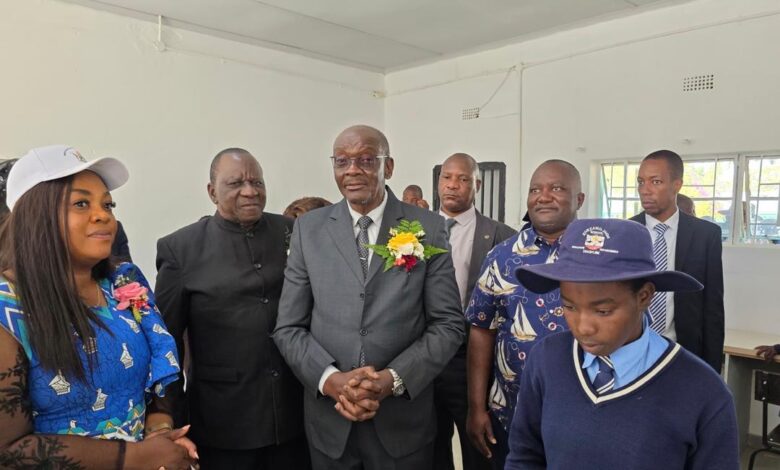NetOne Recognized for Driving Digital Transformation in Rural Zimbabwe

Vice President Kembo Mohadi has commended mobile telecommunications giant NetOne for its steadfast commitment to advancing digital connectivity, particularly in Zimbabwe’s remote and underserved regions.
The praise came during the commissioning of a state-of-the-art Information and Communication Technology (ICT) laboratory at Shanagiso Secondary School, a rural school that now stands as a beacon of digital transformation.
NetOne Applauded for Advancing Digital Connectivity In Rural Zimbabwe
The Vice President highlighted the crucial role NetOne is playing in supporting the country’s Vision 2030—a government blueprint aimed at transforming Zimbabwe into an upper-middle-income economy by the year 2030.
Central to this vision is the creation of a digitally empowered and inclusive society where every citizen, regardless of geographic location, has access to modern information technology and communication services.
“This is more than just a laboratory—it is a gateway to knowledge, to innovation, and to the future,” said Mohadi, addressing teachers, students, and local community members. “NetOne has shown commitment to national development by ensuring that even schools in rural communities like Shanagiso are not left behind in the digital revolution.”

The newly launched ICT lab, which boasts high-speed internet connectivity and modern learning tools, is a key component of NetOne’s flagship initiative known as the “Digital Schools Connect” program. This initiative aims to bridge the digital divide by bringing essential digital infrastructure to rural and underprivileged schools across the country. Through this program, NetOne is not only addressing infrastructure gaps but also enabling e-learning, research, and digital literacy—tools that are indispensable in today’s knowledge-driven world.
Also present at the commissioning ceremony was the Minister of ICT, Postal and Courier Services, Tatenda Mavetera, who handed over 40 laptops to the school as part of the empowerment project. She applauded NetOne for its proactive role in driving inclusive development through public-private partnerships.
“This is a practical example of Vision 2030 in motion, where government and the private sector come together to deliver real impact,” Minister Mavetera said. “Digital skills are no longer a luxury; they are a necessity for every Zimbabwean child. I commend NetOne for understanding this and acting boldly.”
The laptops, combined with the high-speed internet access provided, will allow students at Shanagiso Secondary to access global educational resources, attend virtual lessons, and gain critical computer skills that are essential in the modern economy.
ALSO READ: The Government Prohibits Night Vending And The Sale Of Used Clothing In Central Business Districts
NetOne’s Chief Executive Officer, Engineer Raphael Mushanawani, expressed gratitude for the government’s recognition of the company’s efforts. He reaffirmed NetOne’s pledge to ensure that digital connectivity becomes a basic right for all, not a luxury for a few.
“We are committed to ensuring that every learner, regardless of where they are in Zimbabwe, has access to digital tools and knowledge,” said Engineer Mushanawani. “By 2030, our goal is to ensure every school in the country is connected, equipped, and empowered to thrive in a digital economy.”
Local leaders, school authorities, and parents echoed similar sentiments, expressing appreciation for the facility. Many noted that access to technology will enhance both teaching and learning experiences while opening up a world of opportunities for students who would otherwise have limited exposure to digital platforms.
“This ICT lab is a game-changer for our children,” said a parent from the Shanagiso community. “Now they can learn how to use computers, access global information, and dream beyond the borders of our village.”
As Zimbabwe forges ahead with its digital transformation agenda, collaborations like the one between NetOne and the government offer a promising blueprint for bridging technological gaps and fostering inclusive development. The launch at Shanagiso Secondary School stands as a shining example of what can be achieved when public and private sectors work together with a shared vision for national progress.




